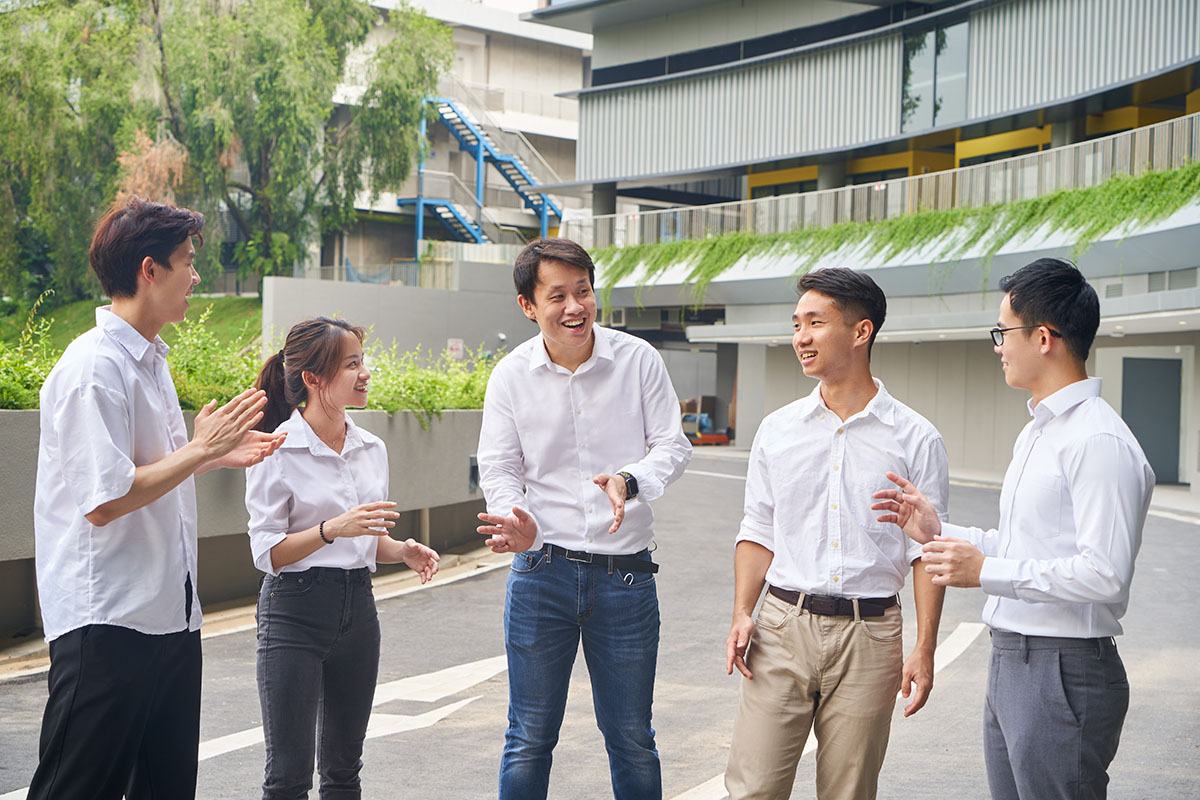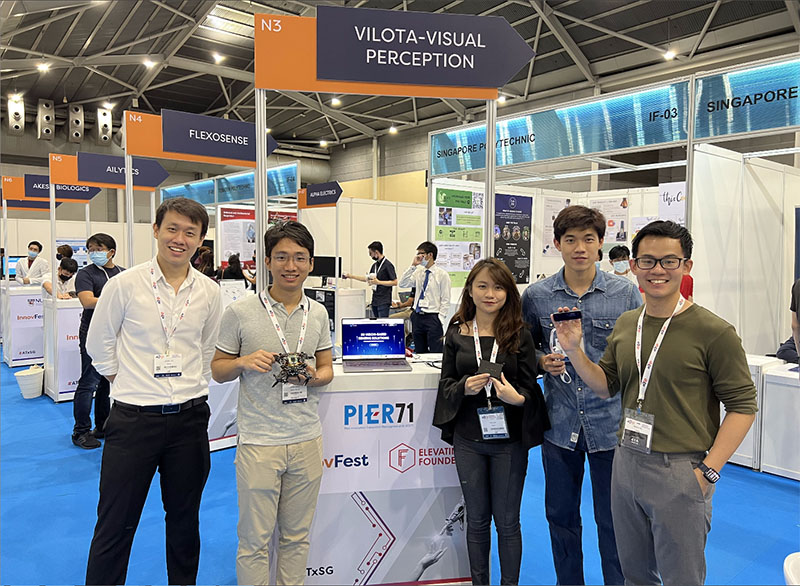Incubator of Dreams

Beyond being a residential college, RC4 brings undergraduates together to create solutions for the world
By Cheng Huimin, Low Yin Yi and Lexdan Lim
Becoming the founders of a novel vision-based sensor solutions company was not something we had actively set out to do when we enrolled in Residential College 4, more than half a decade ago. But if we were to trace the route we took on our entrepreneurship journey, it would lead us back to our time in the College.
One thing we remember most about RC4: how it functioned much like an incubator – a safe environment, providing optimal conditions for interaction, exploration, development and growth. It was thanks to the College that we began developing both the idea for and the skills to run our company, as well as building relationships with each other, which allowed us to bring our best to our business.
Being part of the pioneer cohort of RC4 students, we met when we were freshmen, in the first semester of academic year 2015/2016, during the initial few months of RC4’s own start-up phase. Back then, as it is now, the common thread in our tapestry was Huimin. As they were in the same electrical engineering course, Huimin and Lexdan had been grouped together during the College’s orientation in July 2015. The next month (August 2015), Yin Yi met Huimin when they joined RC4’s badminton interest group. Our friendship grew from there: In academic year 2016/2017, Yin Yi and Huimin decided to serve on the College’s Student Committee, where they honed their leadership skills.
In the same year, Huimin and Lexdan pioneered the first student-led Cognitio Pod – an academic special interest group in RC4 – to bring drone culture to the College and investigate how drones might be used in technology of the future. That formed the basis for our company Vilota, whose name is an abbreviated portmanteau of the words Vision, Location and Data.
Participating in the interest group gave Lexdan and Huimin an insight into how people then saw drones as a mere hobby or, at best, a tool. Few had yet to recognise how principles of drone technology, such as mobility and data-collection using cameras, could be exploited to address tasks such as autonomous robot movement or the tracking of objects. In turn, these tasks could be leveraged upon for various business functions, such as retail – gathering data to understand consumer behaviour – or logistics, to optimise the transfer of goods and space utilisation in warehouses, for instance.
While carrying out his final year project with the Centre For Flight Sciences in National University of Singapore’s Temasek Laboratory between 2018 and 2019, Huimin furthered his know-how in the areas of vision and navigation technology. His hunch about the potential for vision-based sensors was also reinforced, fuelling his motivation to set up a company to focus on this idea. However, he realised no start-up would be able to make it big solely on the back of a novel technology. Aware that visionaries in marketing and business were needed to manage and sell both the idea and the product, Huimin convinced Yin Yi and Lexdan in late 2020 to co-found Vilota.

During a meet-up with our former RC4 professors – Associate Professor Lakshminarayanan Samavedham, former Master, and Dr Naviyn Prabhu Balakrishnan, Director of Student Life and Resident Fellow of Aquila House – we shared our idea with them. We knew they would be as objective as they have always been, and would let us know if we were barking up the wrong tree. Thankfully, both Prof Laksh and Dr Naviyn voiced their wholehearted support, encouraging us to showcase our idea in the NUS Graduate Research Innovation Programme (GRIP). Besides providing an opportunity to road-test our idea among established members of the business community, GRIP would also be an excellent platform for market visibility, with a view towards obtaining partnerships, investments, or funding support.
As our demonstration during the fifth run of GRIP on June 3 last year (2021) was a resounding success, we bit the bullet and incorporated Vilota a month later. While we aren’t able to work on Vilota in a full-time capacity just yet, we’re confident our strategy of using a lean startup methodology is the way to go. Much like the principles of system thinking we’ve learnt in RC4, the “build, measure, learn” loop in this methodology will allow us to iteratively improve on our product over time.
And if there’s anything we’ve learnt from our RC4 experience, it’s that a fruitful incubation period is the differentiating – and winning – factor when it comes to thriving and finding success.
Huimin, Yin Yi and Lexdan are the co-founders of Vilota, a vision-based sensor solutions company, and alumni of RC4.
Find out more about Vilota at vilota.ai. For collaborations, internships or other enquiries, contact them at info@vilota.ai.


